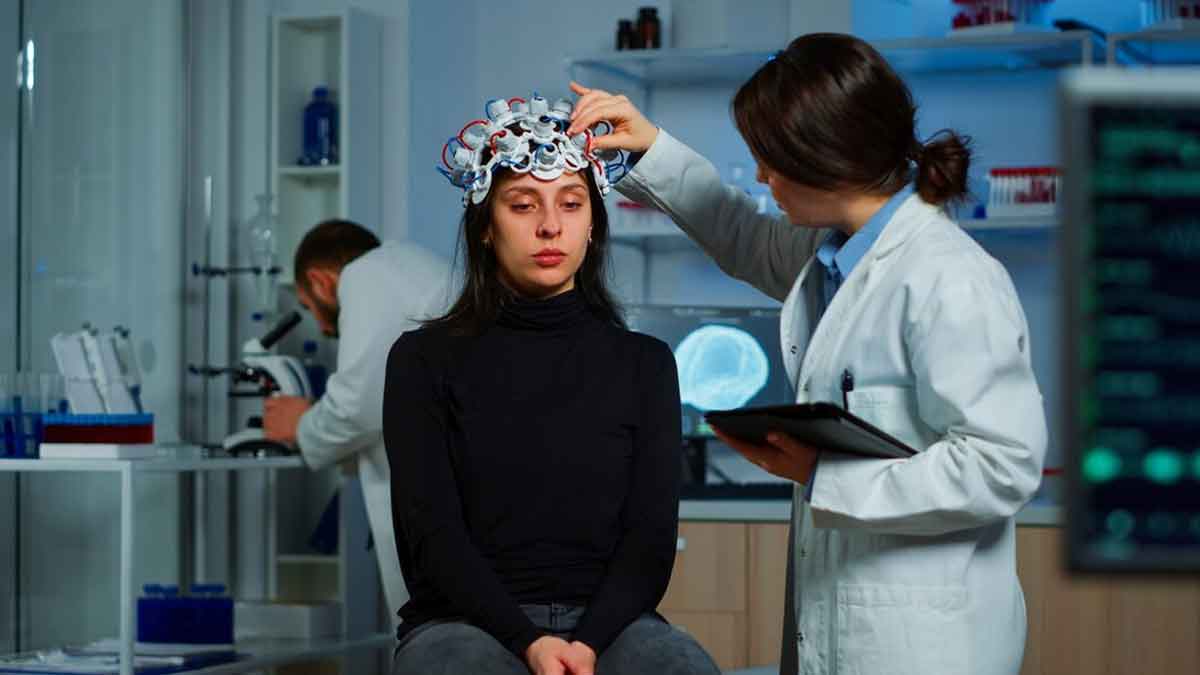
Epilepsy is a condition where people have repeated seizures, which are like sudden, uncontrolled movements or behaviours. It often happens because of a problem in the brain, such as brain tumours. We spoke to our expert, Dr Aditya Gupta, Director, Neurosurgery and Cyberknife, Artemis Hospital, Gurugram, who explained the connection between epilepsy and brain tumours and the treatment measures.
Table of Content:-

“Brain tumours and abnormal tissue growths are linked to epilepsy, with seizures serving as early warning signs. Similarly, Arteriovenous Malformations (AVMs), where brain blood vessels are tangled and prone to rupture, can also cause epilepsy due to abnormal blood flow. Hence, understanding these connections is crucial for effective treatment”, informed Dr Gupta.
According to the Journal of the Neurological Sciences (JNS), the most prevalent symptom among individuals with brain tumours is epilepsy. Epilepsies associated with brain tumours (BTREs) make up 12% of acquired epilepsy and account for 4–10% of all epilepsy cases.
As per the Brain Tumour Charity, a brain tumour may be the cause of your epilepsy if cells surrounding it have formed improperly. Alternatively, they can result from a chemical imbalance brought on by the tumour in the brain. Brain tumour epilepsy can result from one of these interfering with the brain's regular electrical activity.
Also Read: One-Sided Brain Seizures: Expert Explains Focal Epilepsy, Its Symptoms, Causes, And Treatment
Importance Of Raising Awareness

Even though there are clear connections between epilepsy and other brain issues, many people don't know much about it. Therefore, there is a need to spread the word and educate others. This will help people learn about these connections, so they can detect and deal with the problems early on.
“Community programs, campaigns with information, and teamwork between healthcare experts and advocacy groups are essential in sharing this important information”, added Dr Gupta.
Role of Cyberknife Radiosurgery In Treating Epilepsy

Managing the complex connection between epilepsy and other brain conditions calls for advanced treatments that are accurate and not too invasive.
“Cyberknife radiosurgery, an innovative technology with the potential for treating different neurological disorders, is one such solution. Unlike regular surgery, cyberknife radiosurgery doesn't need cuts. Instead, it uses precise beams of radiation to focus on and treat the specific area very accurately, down to a fraction of a millimetre”, highlighted Dr Gupta.
This less invasive method is especially helpful for addressing brain tumours and AVMs in sensitive or difficult-to-reach places, reducing harm to the healthy tissue nearby.
Also Read: Childhood Epilepsy: Expert Lists Lifestyle Modifications To Manage Epilepsy
Managing Epilepsy Through Cyberknife Radiosurgery
For people with epilepsy whose seizures are connected to brain tumours or AVMs, cyberknife radiosurgery provides a focused solution. Dr Gupta said, “By accurately directing radiation to the affected area, cyberknife helps to shrink or remove tumours and lowers the risk of AVM rupture. This precise method not only tackles the main cause of epilepsy but also lessens the chance of it happening again.”
Also, it can be a suitable choice for those who may not be the right fit for traditional surgery due to factors like age, health conditions, or where the tumour is located. Patients undergoing this treatment can recover more quickly and resume their regular activities with minimal interruption since the procedure is conducted on an outpatient basis.
Bottomline
Dr Gupta concluded, “Raising public awareness is a vital step toward fostering a proactive approach to brain health. We can improve treatment outcomes and give patients more control over their neurological health by understanding these relationships and utilising advanced techniques like cyberknife radiosurgery.”
[Disclaimer: This article contains information provided by a registered healthcare professional and is for informational purposes only. Hence, we advise you to consult your expert for necessary treatment measures.]
Also watch this video
How we keep this article up to date:
We work with experts and keep a close eye on the latest in health and wellness. Whenever there is a new research or helpful information, we update our articles with accurate and useful advice.
Current Version